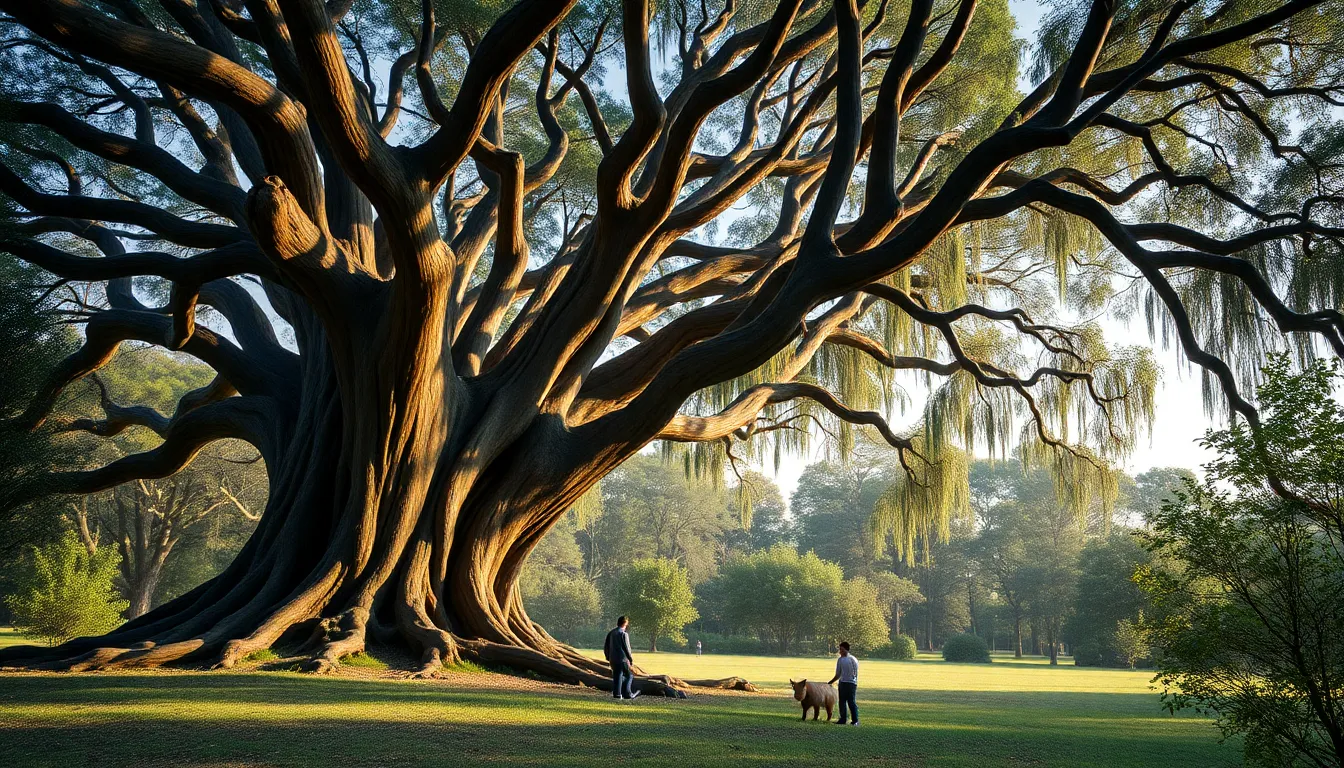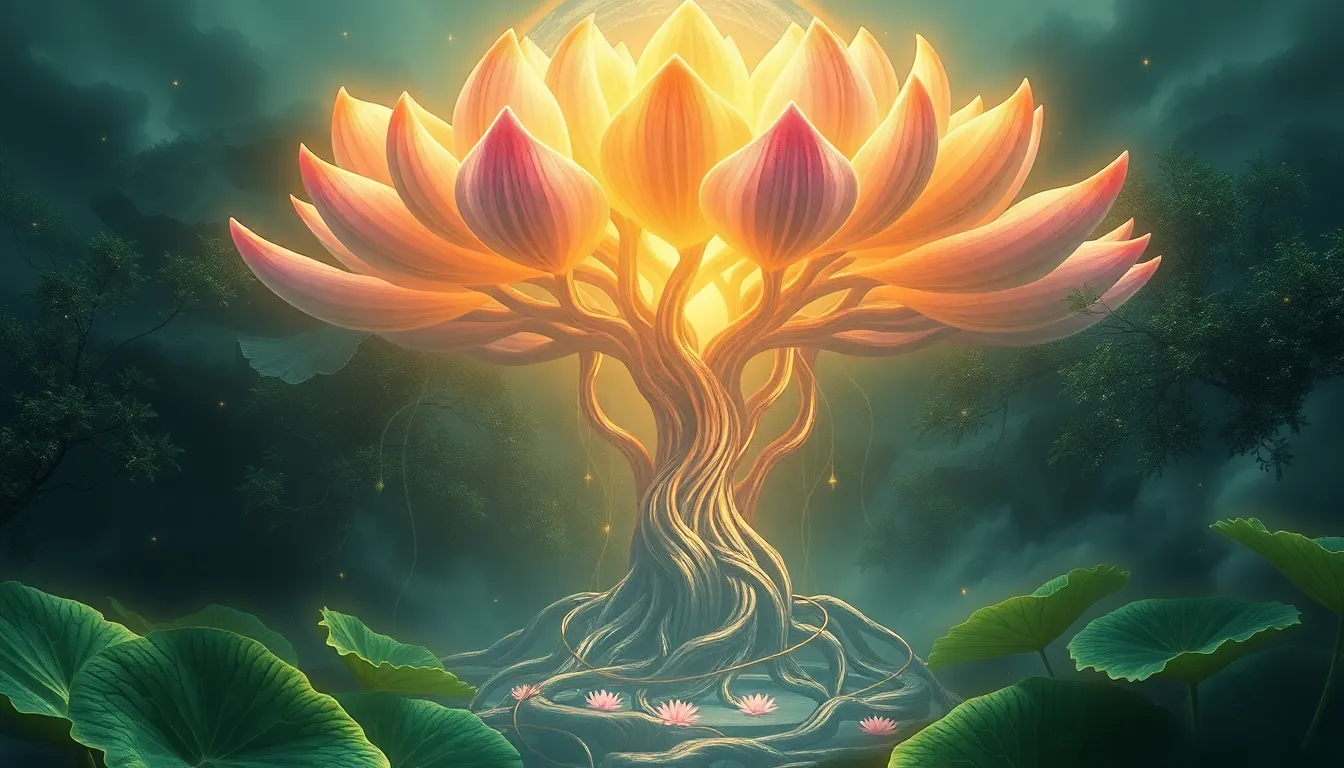The Sacred Eucalyptus: Legends of Healing and Renewal
Introduction to Eucalyptus: The Tree of Healing
The eucalyptus tree, known for its tall stature and aromatic leaves, has earned the title of the “Tree of Healing” in various cultures around the world. With over 700 species, eucalyptus is predominantly native to Australia but has made its way to many parts of the globe. Its significance stretches beyond its physical attributes; it has been revered for centuries for its medicinal properties and therapeutic uses.
Traditionally, eucalyptus has been utilized in medicine, both by Indigenous populations and modern herbalists. Its leaves contain essential oils that are believed to provide various health benefits, making it a focal point in natural healing practices.
Historical Background of Eucalyptus
The eucalyptus tree has its origins in Australia, where it has thrived in diverse climates ranging from coastal regions to arid deserts. As European settlers explored Australia in the 18th century, they recognized the tree’s potential and introduced it to other parts of the world, including California, South Africa, and parts of Europe.
Indigenous peoples of Australia have long utilized eucalyptus for its healing properties. They crafted medicinal poultices from its leaves to treat wounds, infections, and respiratory ailments. Ancient civilizations, too, acknowledged its value, documenting its uses in traditional medicine.
Cultural Significance of Eucalyptus
Eucalyptus is steeped in mythology and folklore across various cultures. In Australian Aboriginal mythology, the tree is often seen as a symbol of resilience and healing. Its rapid growth and ability to thrive in poor soil conditions have made it a metaphor for renewal and strength.
Many cultures associate eucalyptus with spiritual purification. For instance, in some Indigenous rituals, the smoke from burning eucalyptus leaves is used to cleanse spaces and individuals, driving away negative energy and promoting healing.
Eucalyptus and Indigenous Healing Practices
In many Indigenous communities, eucalyptus plays a vital role in traditional healing practices. The leaves are often brewed into teas or made into topical ointments. Some of the common uses include:
- Treating respiratory issues such as colds and coughs.
- Soothing sore muscles and joints through poultices.
- Promoting overall wellness through herbal infusions.
Case studies of Indigenous communities highlight their reliance on eucalyptus. For instance, the Yolŋu people of Arnhem Land use eucalyptus oil in various cultural rituals and health practices, showcasing its importance in their daily lives.
Modern Scientific Research on Eucalyptus
In recent years, modern science has taken an interest in eucalyptus, conducting numerous studies to validate its traditional uses. Research has revealed that eucalyptus leaves contain significant compounds such as:
- Eucalyptol (1,8-cineole) – known for its anti-inflammatory and analgesic properties.
- Flavonoids – which are believed to possess antioxidant effects.
- Tanins – contributing to its antimicrobial properties.
These compounds have been linked to various health benefits, including improved respiratory function and enhanced immune response, further solidifying eucalyptus’s place in both traditional and modern medicine.
The Role of Eucalyptus in Aromatherapy and Essential Oils
The popularity of eucalyptus oil has surged in holistic health practices, particularly in aromatherapy. Its invigorating scent is believed to promote mental clarity and emotional balance. Some benefits of eucalyptus oil include:
- Reducing stress and anxiety levels.
- Alleviating symptoms of respiratory conditions.
- Enhancing focus and concentration.
In aromatherapy, eucalyptus oil is often diffused or added to bath products, allowing individuals to experience its therapeutic effects in a relaxing environment.
Eucalyptus in Environmental Restoration and Renewal
Beyond its medicinal properties, eucalyptus trees play a significant role in ecological restoration projects. Their fast growth and ability to thrive in poor soil make them ideal for:
- Reforesting degraded landscapes.
- Stabilizing soil erosion in vulnerable areas.
- Providing habitat for various wildlife species.
However, it’s essential to consider sustainability and the environmental impact of planting eucalyptus in non-native areas, as they can outcompete local flora, disrupting ecosystems.
Challenges and Controversies Surrounding Eucalyptus
While eucalyptus offers numerous benefits, its introduction to non-native regions has sparked controversy. Concerns include:
- Invasive behavior in certain ecosystems.
- Water consumption that may deplete local aquifers.
- Potential harm to native species and biodiversity.
Balancing the medicinal benefits of eucalyptus with ecological concerns is crucial for sustainable management and conservation efforts.
Personal Stories of Healing and Renewal with Eucalyptus
Many individuals have shared their personal experiences with eucalyptus, highlighting its therapeutic benefits. Anecdotes include:
- A mother describing how eucalyptus oil helped alleviate her child’s respiratory issues during cold seasons.
- An athlete recounting the relief provided by eucalyptus-infused balms after intense training sessions.
- A wellness enthusiast who credits eucalyptus tea with improving their overall immune health.
These narratives often intertwine with cultural beliefs, showcasing the deep connection between personal healing and traditional practices.
Conclusion: The Enduring Legacy of Eucalyptus in Healing Traditions
The eucalyptus tree serves as a powerful symbol of healing, renewal, and cultural significance across the globe. From its historical uses by Indigenous peoples to modern scientific research validating its medicinal properties, eucalyptus remains a vital part of both traditional and contemporary healing practices.
As we look to the future, it is essential to honor the legacy of eucalyptus by promoting sustainable practices that respect both its ecological role and its profound impact on human health and well-being.



